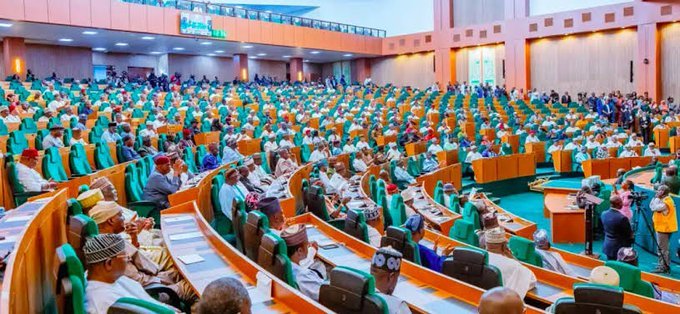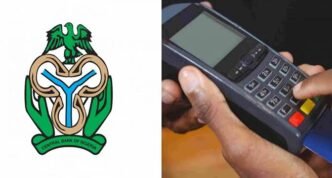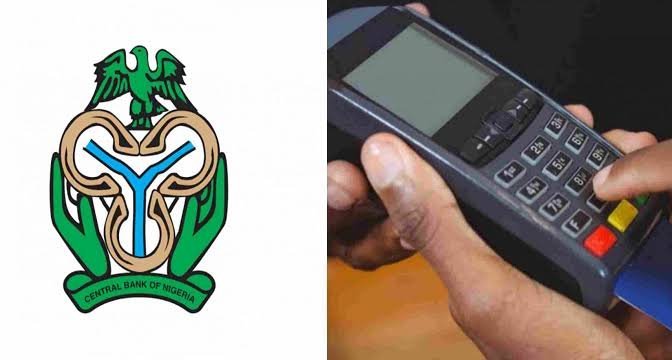The Nigerian House of Representatives has established an Ad-hoc Committee to conduct an in-depth review of cryptocurrency and Point of Sale (POS) operations across the country, amid growing concerns about financial fraud, regulatory loopholes, and economic implications linked to digital financial systems.
The development marks one of the most significant parliamentary moves in recent years concerning Nigeria’s evolving digital finance landscape, which has seen explosive growth in both cryptocurrency adoption and the proliferation of POS terminals.
A Response to Mounting Concerns
Announcing the resolution during Tuesday’s plenary session, Speaker of the House, Rt. Hon. Tajudeen Abbas, said the committee was formed in response to motions raised by lawmakers alarmed by the surge in cyber-related crimes, fraud through POS machines, and the ambiguous regulatory environment governing cryptocurrency trading in Nigeria.
The motion, sponsored by Hon. Ibrahim Isiaka (Ogun State), highlighted the urgent need to protect Nigerians from financial exploitation and to ensure that the rapidly growing digital financial systems operate within the bounds of law and economic stability.
According to Isiaka, “The unregulated activities of cryptocurrency traders and POS operators across the country have become a major source of concern. While innovation in fintech has brought convenience and inclusion, it has also created vulnerabilities that criminals now exploit to defraud unsuspecting citizens.”
The House subsequently resolved to mandate the newly formed Ad-hoc Committee to interface with key financial regulators, including the Central Bank of Nigeria (CBN), the Nigeria Financial Intelligence Unit (NFIU), the Economic and Financial Crimes Commission (EFCC), and the Nigerian Communications Commission (NCC), to harmonize policies and strengthen oversight.
Crypto in Nigeria: Between Innovation and Regulation
Nigeria remains one of the largest cryptocurrency markets in Africa, with millions of young people actively trading digital currencies despite regulatory restrictions. The surge in crypto activity gained momentum after the Central Bank of Nigeria (CBN) issued a circular in 2021 prohibiting banks and other financial institutions from facilitating crypto transactions.
However, rather than suppressing the market, the ban drove most activities underground or toward peer-to-peer (P2P) platforms, where transactions occur directly between users. In 2024, the CBN softened its stance, issuing new guidelines that allowed Virtual Asset Service Providers (VASPs) to operate within a regulated framework, but challenges persist.
Lawmakers say these evolving dynamics have created a complex ecosystem — one that holds economic potential but also exposes the nation to illicit financial flows, money laundering, and terrorism financing.
“The crypto market is not inherently bad,” said Hon. Isiaka during the plenary debate. “But we cannot turn a blind eye to the dark web of fraudsters using digital assets to scam our citizens, especially when billions of naira are being lost monthly to Ponzi-like crypto investments.”
The POS Explosion and the Fraud Epidemic
Parallel to the crypto boom, Nigeria has also witnessed an astronomical rise in Point of Sale (POS) operators — small-scale agents who provide cash-in and cash-out services across communities. With over 2 million registered POS terminals nationwide, the system has become a crucial bridge for financial inclusion, especially in rural and semi-urban areas where banks have limited presence.
However, lawmakers and security agencies have raised alarms over the surge in POS-related fraud, card cloning, identity theft, and unauthorised debits. The proliferation of unregistered operators and weak verification processes have further compounded the challenge.
In his remarks, Hon. Chinedu Ogah (Ebonyi State) stated, “The POS system was designed to bring financial access to the grassroots, but it has now become a tool for fraudsters. People are being defrauded daily, and there is minimal accountability because the system is loosely regulated.”
Several incidents of POS-related crimes have made headlines recently — from agents collaborating with hackers to defraud banks, to syndicates that use stolen bank details to withdraw funds from unsuspecting victims. The Nigeria Police Force has repeatedly warned that the ease of acquiring POS machines without thorough vetting poses a national security risk.
Committee’s Mandate and Scope
According to the resolution, the Ad-hoc Committee will undertake a nationwide review of existing policies regulating cryptocurrency and POS operations, assess compliance levels among operators, and recommend legislative reforms to strengthen the sector.
The Committee is also expected to summon stakeholders, including the Central Bank, fintech startups, commercial banks, and security agencies, for public hearings.
Part of the committee’s mandate includes:
- Evaluating the implementation of the CBN’s 2024 guidelines on Virtual Asset Service Providers (VASPs).
- Reviewing the registration and licensing process of POS operators under the Nigeria Inter-Bank Settlement System (NIBSS).
- Identifying loopholes exploited by fraudsters within the financial system.
- Proposing new legal frameworks to enhance consumer protection and cybersecurity in digital finance.
Speaker Abbas emphasized that the committee must submit its report within six weeks for further legislative consideration, adding that “the goal is not to stifle innovation but to create a safer and more accountable financial ecosystem.”
Experts React: Balancing Regulation and Innovation
Financial analysts and fintech experts have welcomed the move, describing it as “timely and necessary,” but cautioning against heavy-handed regulations that could stifle innovation.
Speaking to journalists, Lagos-based fintech analyst, Dr. Tolu Oloyede, said the House’s decision signals that Nigeria is finally moving toward harmonizing its financial technology laws.
“Digital finance in Nigeria has outpaced regulation,” Oloyede said. “We have a situation where POS agents, crypto traders, and online lenders are operating in grey areas. A parliamentary intervention can help streamline oversight, provided it does not discourage investment or innovation.”
He added that the challenge for lawmakers would be to design policies that ensure security and accountability while allowing room for technological progress.
“Overregulation will only push people back into untraceable systems,” he warned.
A Look at Global Practices
Globally, governments are grappling with how to manage the rapid rise of digital currencies and informal payment systems. Countries like the United States and the United Kingdom have introduced licensing requirements for crypto exchanges and transaction monitoring mechanisms to prevent financial crimes.
In Africa, nations such as Kenya, South Africa, and Ghana are adopting progressive frameworks that recognize cryptocurrencies as financial assets subject to taxation and regulation — a path many experts say Nigeria could emulate.
Meanwhile, the spread of POS systems in other African economies has also brought challenges similar to Nigeria’s, including fraud, counterfeit currency circulation, and data breaches. Regulators in these countries are increasingly turning to biometric verification and centralized licensing to tighten control.
Public Expectations and Next Steps
The formation of the Ad-hoc Committee has been met with cautious optimism by many Nigerians who have been victims of digital financial fraud. Social media platforms were flooded with mixed reactions — some users applauding the move as overdue, others fearing it could lead to restrictive laws that make transactions more difficult.
For many citizens, the key question remains whether the government can strike a balance between consumer protection and financial freedom.
The committee’s findings are expected to shape Nigeria’s broader digital economy policy, particularly as the government seeks to boost cashless payments and attract foreign investment in fintech innovation.
According to the National Bureau of Statistics (NBS), Nigeria’s fintech sector contributed over $15 billion to the economy in 2024, underscoring the importance of the digital finance ecosystem to national growth.
Conclusion
As Nigeria stands at a crossroads in its digital financial evolution, the House of Representatives’ decision to review cryptocurrency and POS operations could redefine the nation’s regulatory landscape.
While the move aims to protect citizens and strengthen oversight, experts insist that any reforms must balance innovation, inclusion, and security.
The coming weeks will determine whether the Ad-hoc Committee can chart a course that safeguards Nigerians without undermining the digital transformation that has positioned the country as a leader in Africa’s fintech revolution.














